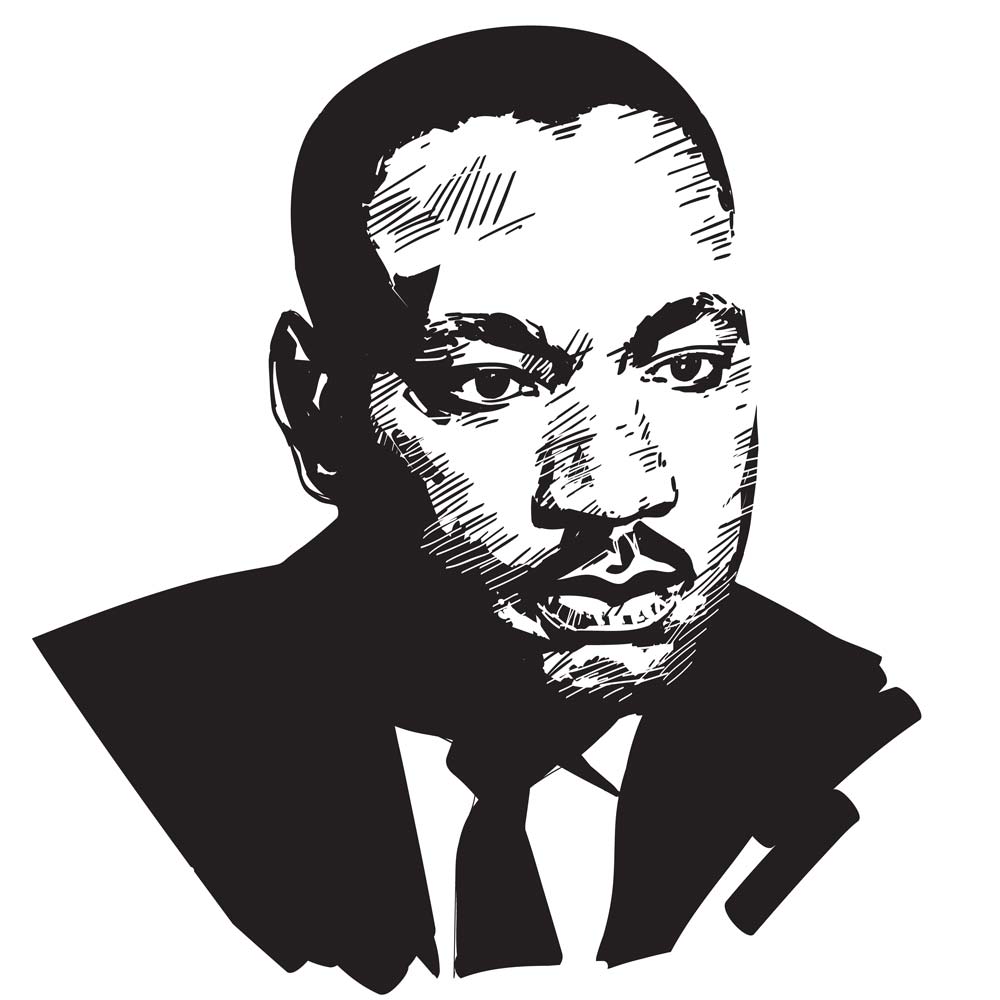8 Intriguing Quotes about Dr. Martin Luther King Jr.
Most of us know that Dr. Martin Luther King Jr. has countless memorable quotes, but have you heard these intriguing quotes about Dr. King?

Most of us know that Dr. Martin Luther King Jr. has countless memorable quotes, but have you heard these intriguing quotes about Dr. King?

 It's hard to quantify how many memorable quotes were delivered by Dr. Martin Luther King Jr. throughout his many years of relentless efforts in pushing for civil rights. However, what you may not be as familiar with are some of the quotes about Dr. King that have been communicated by others. Check out the following quotes, including a few from some Saint Leo University faculty members.
It's hard to quantify how many memorable quotes were delivered by Dr. Martin Luther King Jr. throughout his many years of relentless efforts in pushing for civil rights. However, what you may not be as familiar with are some of the quotes about Dr. King that have been communicated by others. Check out the following quotes, including a few from some Saint Leo University faculty members.
"For me, Martin Luther King's greatest contribution to America is that he forced this country to live up to the ideals that it was founded on. The Declaration of Independence and the Constitution are stirring documents that have inspired people all over the world for the past 200-plus years. But we were not practicing what we preached, and MLK made us recognize that sad fact." – Jack McTague, a longtime Saint Leo history professor
"We can move in that direction as a country, in greater polarization – black people amongst blacks, and white amongst whites, filled with hatred toward one another. Or we can make an effort, as Martin Luther King did, to understand and to comprehend, and replace that violence, that stain of bloodshed that has spread across our land, with an effort to understand, compassion and love…. What we need in the United States is not division; what we need in the United States is not hatred; what we need in the United States is not violence and lawlessness, but is love and wisdom, and compassion toward one another, and a feeling of justice toward those who still suffer within our country, whether they be white or whether they be black." – Robert F. Kennedy
"For years, I declined to fill in the form for my Senate press credential that asked me to state my 'race,' unless I was permitted to put 'human.' The form had to be completed under penalty of perjury, so I could not in conscience put 'white,' which is not even a color let alone a 'race,' and I sternly declined to put 'Caucasian,' which is an exploded term from a discredited ethnology. Surely the essential and unarguable core of King's campaign was the insistence that pigmentation was a false measure: a false measure of mankind (yes, mankind) and an inheritance from a time of great ignorance and stupidity and cruelty, when one drop of blood could make you 'black." –Christopher Hitchens, writer
"We rightly and best remember Dr. King's soaring oratory that day, how he gave mighty voice to the quiet hopes of millions; how he offered a salvation path for oppressed and oppressors alike. His words belong to the ages, possessing a power and prophecy unmatched in our time." – President Barack Obama
"As an historian of U.S. history, especially in the capacity as a teacher, MLK's life, work, and words continue to offer a valuable and critical lens to understand not only American history, but also the United States today. His famous efforts to call out and correct racial discrimination are the most obvious, but also his criticism of economic inequality and his support for workers' rights, as well as his willingness to challenge U.S. imperialism around the world and the excessive use of U.S. military might (famously, he called America the "greatest purveyor of violence around the world") still rings true and offers endless lessons and discussion points for the classroom." - Dan DuBois, assistant professor of history at Saint Leo
"Let the strivings of us all, prove Martin Luther King Jr. to have been correct, when he said that humanity can no longer be tragically bound to the starless midnight of racism and war. Let the efforts of us all, prove that he was not a mere dreamer when he spoke of the beauty of genuine brotherhood and peace being more precious than diamonds or silver or gold. Let a new age dawn!" – Nelson Mandela
"He was very pure in mind and heart. He was a lover: a lover not only of his race but a lover of all mankind. His heart was so broad, so great, so magnanimous, and this gave him a most sincere feeling of absolute oneness with everyone. This is what made him so divinely great." – Sri Chinmoy, poet.
"Dr. King has become an 'easy check-box' with regard to certain aspects of American history. My hope is that more of us are inspired to investigate the breadth and depth of his work, to fully appreciate his significance, and recognize its importance, even when it's not Dr. King Day or Black History Month." – Dr. Janis Prince, associate professor of sociology And chair of Saint Leo's Department of Social Sciences